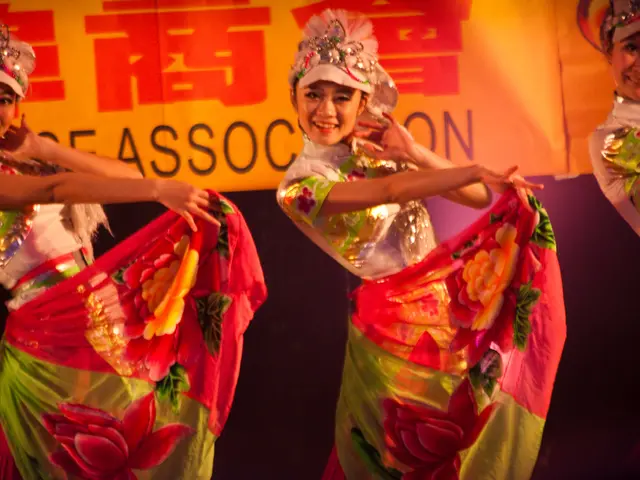Discourse on Voting and Mutual Liberation: A Chat with Robert Longa
Rebel Spirit in the Heart of Caracas: El Panal Commune and the Alexis Vive Patriotic Force
Deep in the heart of 23 de Enero barrio, Caracas, the Alexis Vive Patriotic Force has crafted a grassroots paradise known as El Panal Commune. This vibrant community forged its basis years before communes became a key part of the official discourse, fueled by hard work and relentless organizing. Today, El Panal thrives with a socialist economy at its core. In this exclusive interview with communal spokesperson and Alexis Vive founder Robert Longa, we dive into Venezuela's participatory democracy and the recent presidential elections that took place under the shadow of imperialist aggression.
Before we delve into the elections, can you give us a glimpse of Venezuela's democratic project?
The 20th century saw a wildfire-like spread of rebel spirits across Latin America, a phenomenon theorized by Régis Debray as "foquismo". This strategy, inspired by Fidel Castro and Che Guevara's guerrilla tactics in the Sierra Maestra, swept Latin America. A revolt against oppressive systems, yes, but also the first attempt to usher in socialism within the confines of liberal democracy, exemplified by Chile's Popular Unity government (1970-73).
However, this democratic experiment met a brutal end when Pinochet orchestrated a fascist coup in 1973, with the backing of US imperialism. The bitter lesson was clear: the establishment would disregard the rules of its own game if the outcome didn't align with their interests.
The following decade saw another wave of resistance against neoliberalism, leading to the emergence of Hugo Chávez in 1992. This new revolution was not limited to isolated individuals but rather the political expression of vibrant, growing social movements gaining momentum across the continent.
Venezuela's leadership, from Chávez to Maduro, was promoted within the framework of its constitution and ratified by regular elections. Yet, imperialism did everything within its power to topple the Bolivarian Revolution.
In light of the recent elections, can you elaborate on Venezuela's participatory and protagonistic democracy?
Electing leaders is just one tactical moment in the broader struggle for the Bolivarian process. The true foundation lies in its participatory and protagonistic nature, with the communal assembly serving as the highest democratic authority for us.
The post-electoral process requires strategic leverage, not spontaneity. The Alexis Vive Patriotic Force understands this well, just as Lenin emphasized in What Is to Be Done? We worked tirelessly to secure Maduro's victory and are fully committed to defending this victory against local fascists and US imperialism, knowing that revolutionary spirit never dies.
How did El Panal Commune mobilize during the election period?
During the campaign, our community came together for frequent meetings, assemblies, and activities. We established an operations center to track media and social media trends, mapping the commune's territory to understand its strengths and weaknesses.
We walked door-to-door, rallying voters to the polls and pushing for participation in the voting process. In the post-electoral period, our focus is on defending the revolution, as we have always done.
In the face of imperialism's attempts to overthrow the government, what do you make of the current state of US imperialism?
Imperialism is like a desperate, wounded hyena. Now more than ever, it poses a significant threat. We live in a world where traditional warfare coexists with new tactics like biological warfare, orchestrated famines, and genocides. As the world's largest oil reserve holder, Venezuela remains a high priority for imperialist interests, and we must remain vigilant.
As the revolutionary spirit continues to grow, what opportunities do you see for the future of the communes?
Communes are evolving, stepping away from the defensive role of resisting imperialism to embracing an offensive posture that propels a sovereign production model. Symbolic declarations like the upcoming June 15 "War-to-the-Death Decree" exemplify this transition, reflecting Bolívar's anti-colonial rhetoric to fight off external threats.
In addition, communes serve as localized governance structures aiming to replace capitalist frameworks. Over 53,000 communal councils and 38,000 communes collaborate to implement "structural projects" focused on food sovereignty, agroecology, and collective ownership. Cross-border solidarity initiatives with movements like Brazil's MST align with the goal of decentralizing production and moving beyond oil dependency.
A proposed constitutional reform seeks to formalize communes’ political-economic role, potentially institutionalizing them as parallel structures to traditional state organs. This transformation would deepen the process, ensuring that communal councils remain integrated in national decision-making.
In conclusion, the communes represent the heart of the Bolivarian Revolution, connecting resistance to socialist transformation through grassroots governance. As the power of the people continues to grow, the future of Venezuela lies in the hands of the communities built upon the foundations of the communes.
- The Alexis Vive Patriotic Force, housed within the El Panal Commune in Caracas, is a product of persistent organizing decades before communes became a focal point in national discourse.
- Venezuela's democratic project, often characterized as a rebirth of "foquismo," balances revolutionary ideals with Latin America's liberal democratic framework, as seen in the ascension of leaders like Hugo Chávez.
- Participatory democracy in Venezuela is rooted in the communal assembly, which serves as the highest democratic authority and emphasizes strategic leverage over spontaneous action.
- Throughout election periods, El Panal Commune mobilizes through regular meetings, mapping community strengths, door-to-door outreach, and voter mobilization to defend the revolution and secure victories.
- The potential institutionalization of communes as parallel structures to traditional state organs, as suggested by a proposed constitutional reform, could deepen the revolutionary process and ensure continued integration of communal councils in national decision-making.









